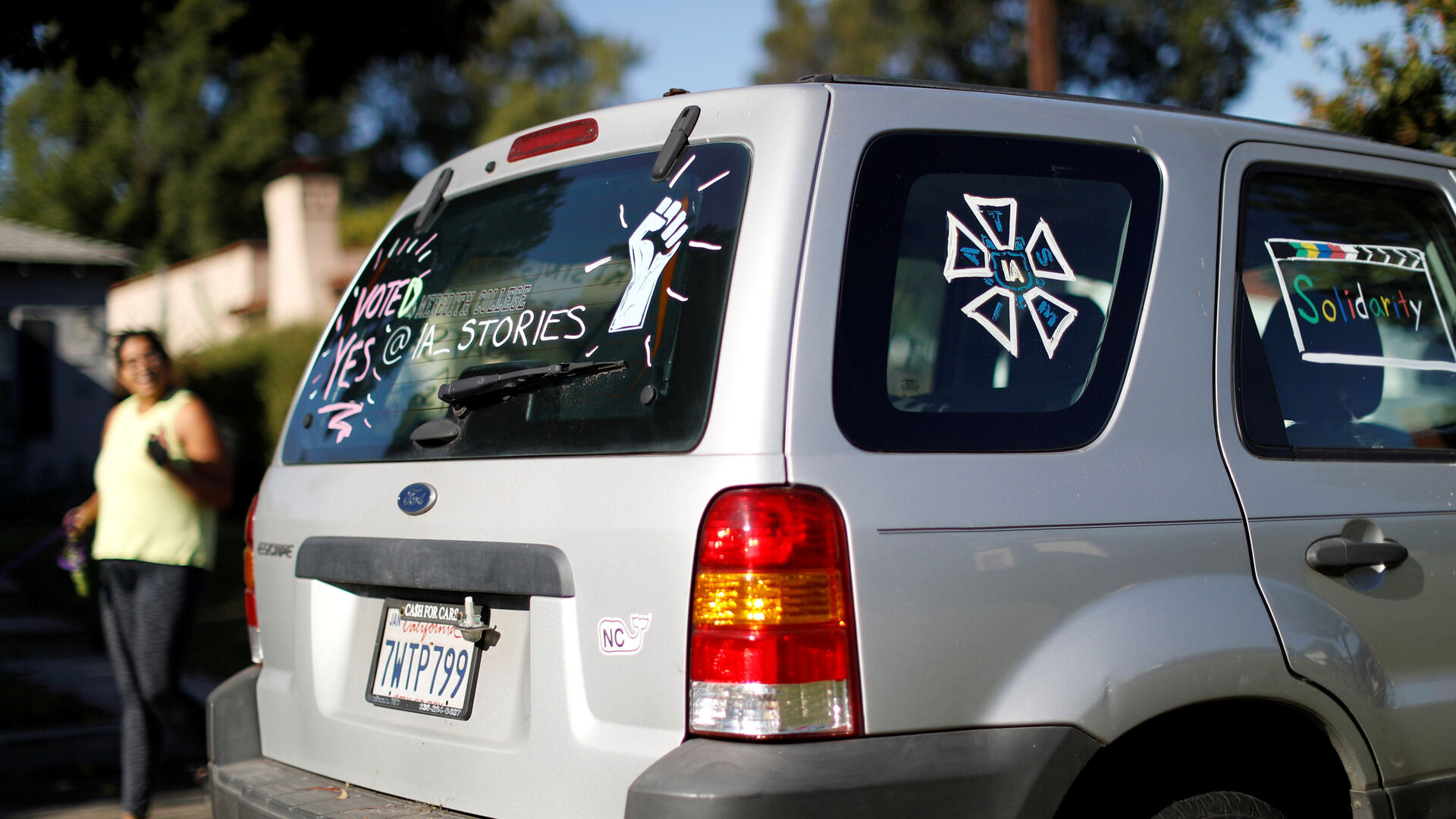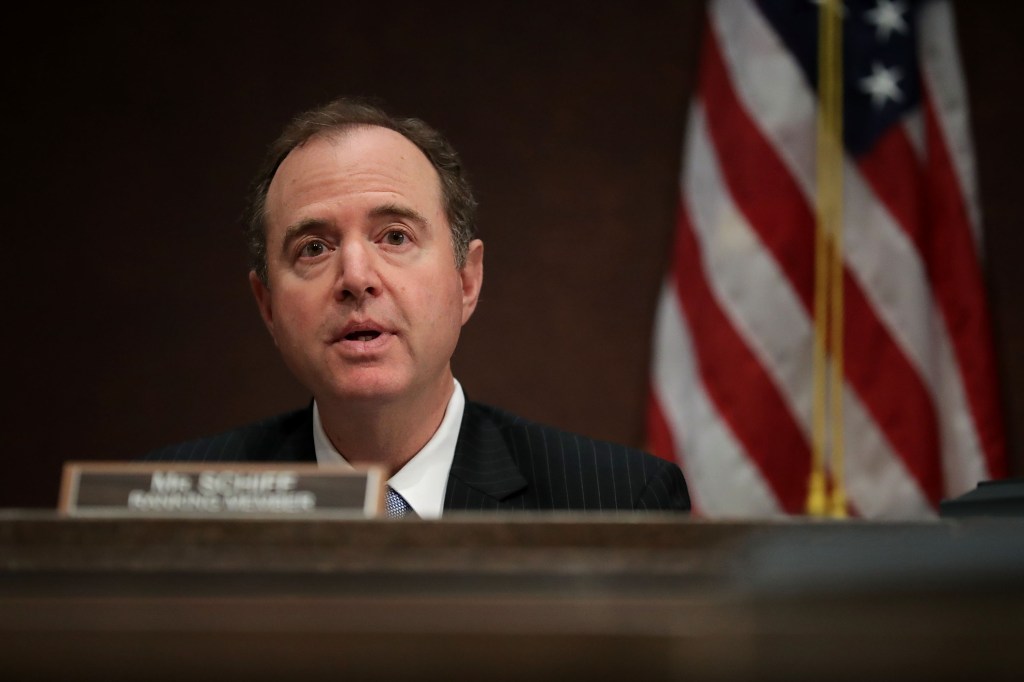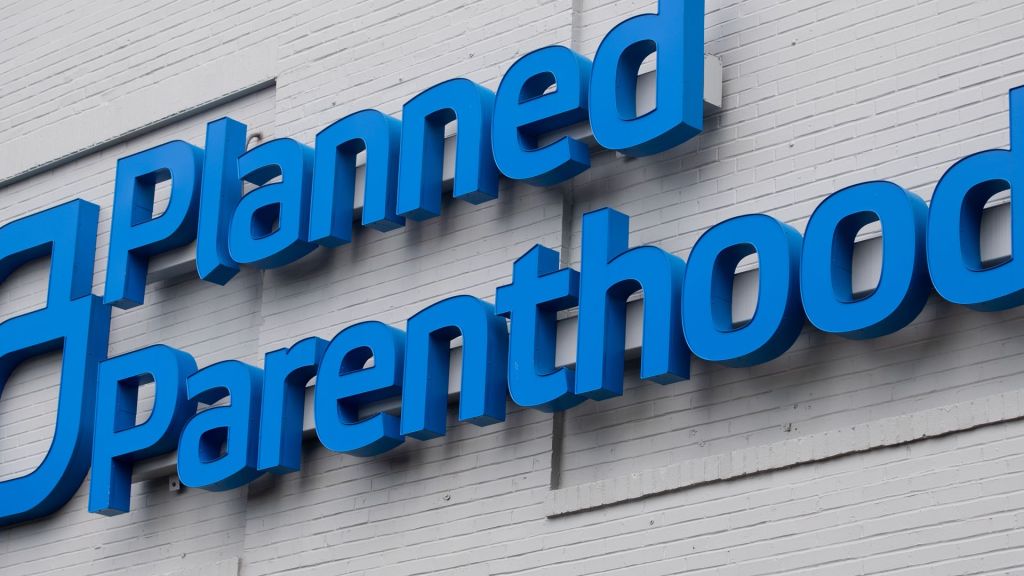
Antoinette Messam, costume designer: “I feel it’s– this conversation is long overdue. I feel that for the first time, I feel like we’re being heard. I feel that people are listening, and people are talking about it, and if that helps to bring any change. I’ve known people who have had accidents because the hours have been long, and they were too tired. I know people who couldn’t be home with their children. I’m a single mother. I knew what I had to do in order to work and still have time for my family. And it’s hard. And it’s hard because you’re also an artist and you want to give all you can to your craft and love what you do and not feel like you’re losing something else as well. I just want my crew to sleep, you know? So, I’m in solidarity.”
Reporter: “So are you ready to strike?”
Mihai Malaimare Jr., cinematographer: “Well, like everybody.”
Reporter: “What do you want to see happen?”
Mihai Malaimare Jr., cinematographer: “I mean, just those little changes like like again, like how how this production made it work and just trying to figure out not only if it’s safe for people to go to work, but is it safe for people to go home? And it happened so many times we had a snowstorm and I remember the producers came and they were talking like, ‘OK, we should probably wrap early so people get safe to home’ and that’s normal.”
Jeymes Samuel, director, writer, producer: “We’re all filmmakers. Everyone on the set is a filmmaker. The catering person is a filmmaker. The person just running and getting the water, is a filmmaker. Everyone’s there making a film, and everyone should be respected as such. As much as the director, everyone should be, you know, respected as. Really, that’s all I could speak to on what it is. You know, obviously I need to learn more about what’s going on with the strike and stuff, and I hope everything gets resolved. But you know, we all need to be treated fairly. I’m Black from the hood, so I know about unfair treatment, probably as much or more than the next person. We are need to be treated fairly.”
Regina King, actor: “There’s no such thing as this moment here happening without the entire crew, without the entire production, and I think so many of us that are part of the audience don’t realize all that it takes to bring these stories to you. You just see us, you only see us in the interviews. So, you know, I support my production brethren.”
Richard Lawson, actor: “Well, listen, people strike because something is not right and people are trying to level the playing field, so I’m not mad at anybody. If strike is the only way, then then let there be a strike. If it’s going to bring people into a conversation, you know. I’m in the Screen Actors Guild, the Equity, Actors’ Equity, and so all the strikes that we had over the years was because of the fact that, you know, the industry was putting their foot on our neck. And so, these people are fighting for their lives. And so, I support anybody that’s fighting for their lives.”
Jonathan Majors, actor: “People should be treated fairly. I mean, I think what we do is, it’s hard work and hard work should be rewarded, and it should just be fair. Make it even. I mean, that’s what Nat Love is all about. You know, make it even, keep it fair. You know, and hopefully that’s what will happen. I believe it will.”
Baz Luhrmann, director: “But I’m really all ears and I tell you, I’m there, I’m going to do my homework. I’m not going to take my information from anyone, but actually genuinely, genuinely think it through. But I think, you know, the world is changing so much. All sorts of things have to recalibrate. You know, it’s a natural thing that as systems change, as the tectonic plates of history smash and change, you know, we have to recalibrate things. So, I don’t want to pass judgment. I don’t yet know, but I’m sure that there needs to be some recalibration. That would be my gut instinct.”






